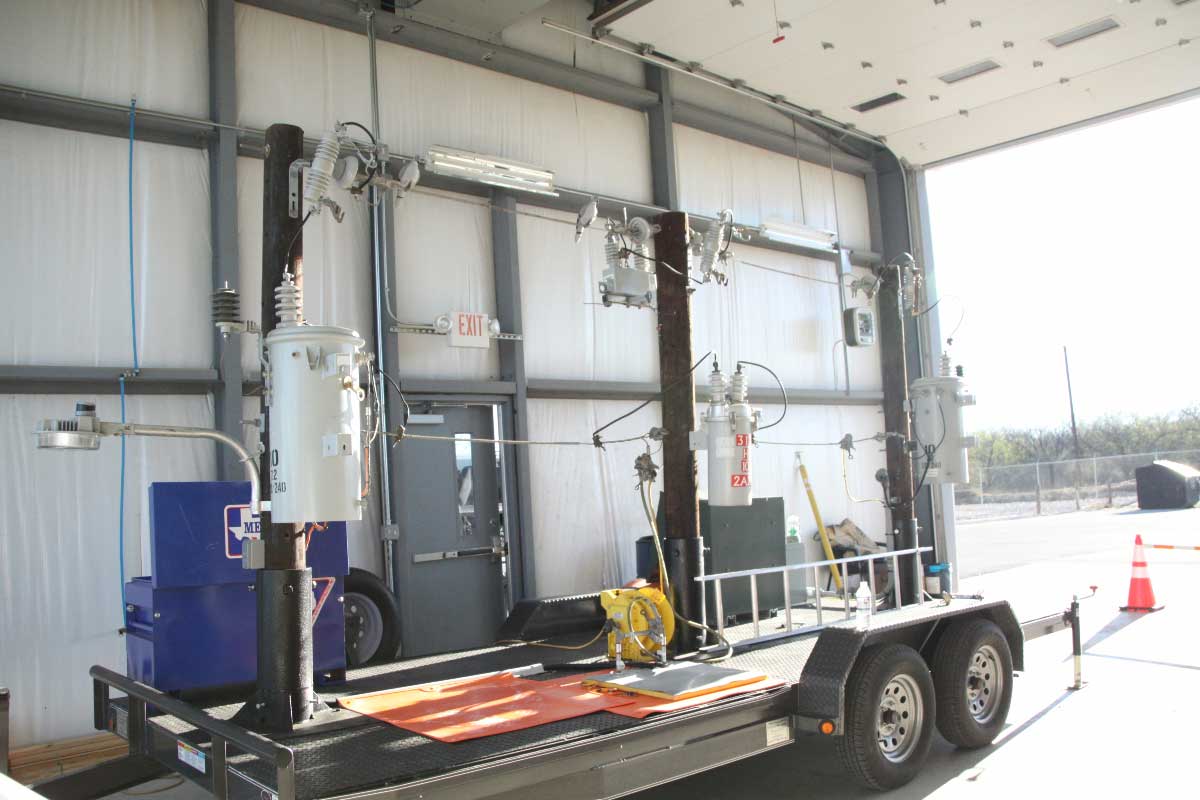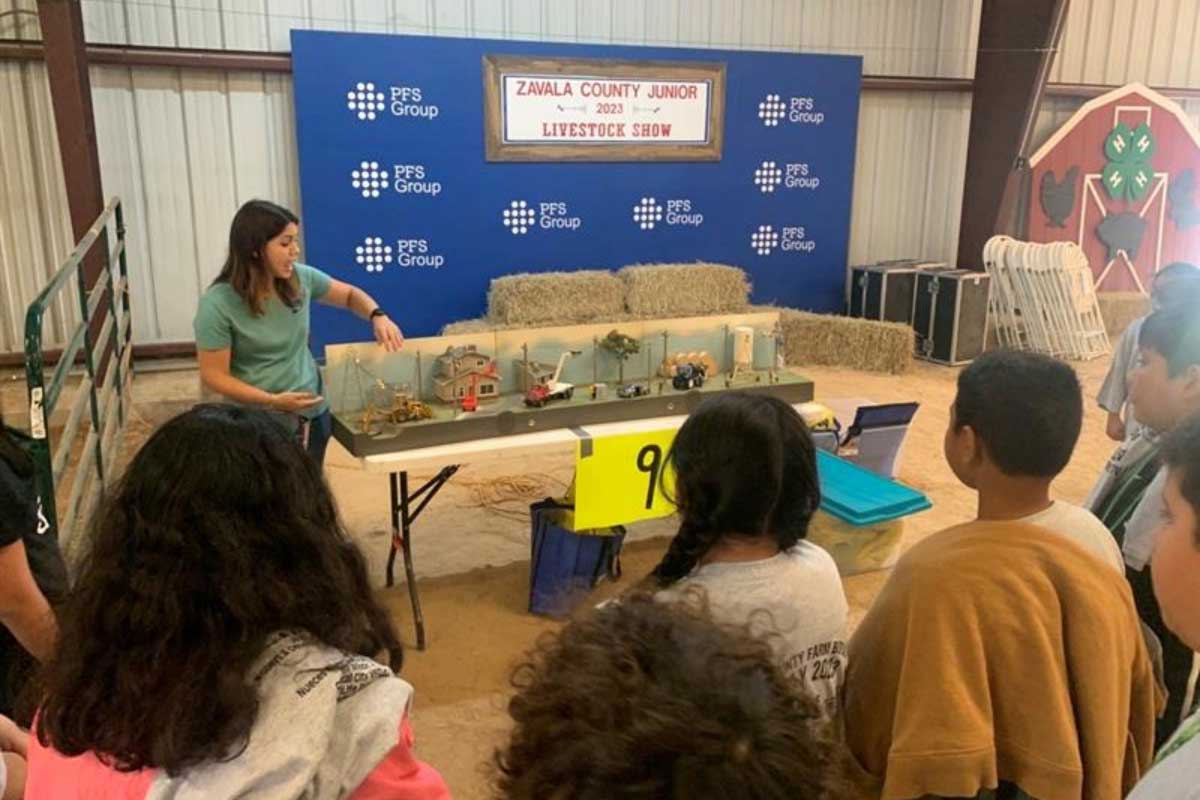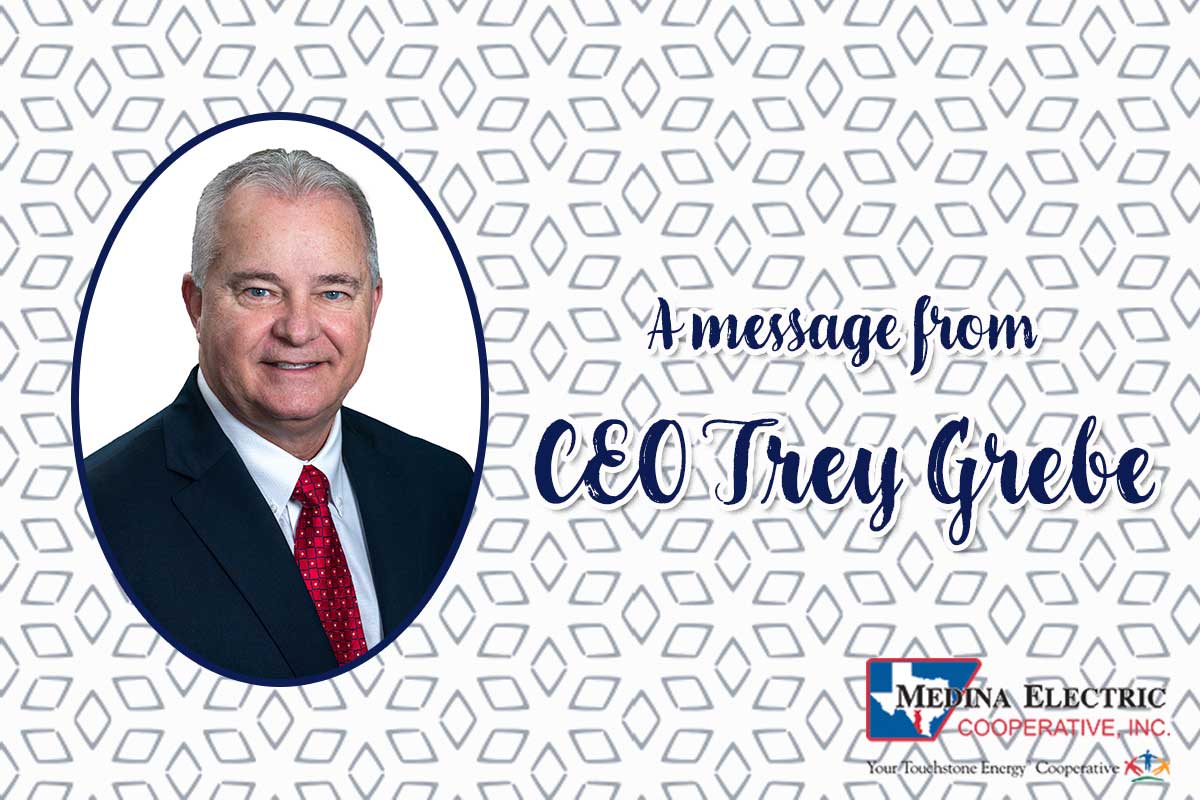At Medina Electric Cooperative, we recognize Electrical Safety Month every May, but we also know the importance of practicing safety year-round. We recognize that everyone—from our co-op crews to you—has a part to play in prioritizing safety.
Thousands of people across the U.S. are critically injured or electrocuted as a result of electrical fires and accidents in their own homes, according to Electrical Safety Foundation International. Many of these accidents are preventable. Electricity is a necessity that powers our daily lives, but we know firsthand how dangerous electricity can be because we work with it every day.
To me, safety is much more than a habit. It’s a way of life.
As the manager of your cooperative, it’s my responsibility to keep our employees safe, but we also want to help keep you and all members of our community safe. That’s why you’ll see Medina EC hosting safety demonstrations at community events and in schools throughout the year, to emphasize the dangers of electricity.
We discuss emergency scenarios, such as what to do in a car accident involving a utility pole or downed power lines. We caution students on the dangers of padmount transformers and overloading household circuits with too many electronic devices.
Here are a few practical electrical safety tips.
Replace frayed wires. Power cords can become damaged or frayed from age, heavy use or excessive current flow. If cords become frayed or cut, replace them before they cause a shock or fire.


Avoid overloading circuits. Circuits can only cope with a certain amount of electricity. An overload happens when you draw more electricity than a circuit can safely handle—by having too many devices running on one circuit. If a fuse blows or a circuit breaker is tripped, don’t just replace or reset it. Find out what caused the circuit to overload and correct the problem.
Label circuit breakers to understand the circuits in your home. Contact a qualified electrician if your home is more than 40 years old and you need to install multiple large appliances that use a lot of electricity.
Use extension cords properly. Never plug an extension cord into another extension cord, and don’t exceed the wattage of the cord. Doing so risks overloading the cord and creating a fire hazard. Extension cords should be used as temporary solutions, not permanent fixes.
Make sure you have ground-fault circuit interrupters installed and that they’re working properly. Many older houses were built prior to advanced electrical codes. GFCIs are especially important in parts of the home near water—in the kitchen and bathrooms and in laundry areas.
Our top priority is providing an uninterrupted energy supply 24/7, 365 days a year. But equally important is keeping our community safe around electricity.
Until next time,
Trey Grebe


